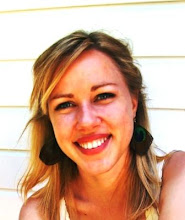Tough to Reconcile
***Laura Waters Hinson is a member of my church, Church of the Resurrection. She was kind enough to grant me an interview so that I could write an article for my workshop.***
"By nature, I'm a skeptic," says D.C. filmmaker Laura Waters Hinson. That inborn skepticism is a clear asset to her new documentary, "As We Forgive," a film treading the heavily mined topic of social reconciliation in post-genocide Rwanda, where questions abound, answers break your heart, and the stakes are unbearably high.
In Rwanda, a rolling emerald country south of Uganda, the people speak Kinyarwanda, and oftentimes French, with an accent that drains it of its snobbery. Among its largely rural and contemplative people, coffee grows on the hills and churches stand in the villages. In April 1994, the plane of the president of Rwanda was shot down, and the extremist Hutu government blamed the Tutsis, an ethnic minority that had been broadly favored by Belgian colonialists. "Stamp out the Tutsi cockroaches!" became the government's official credo, and mobs of Hutu extremists, called Interahamwe, went out into all Rwanda bearing machetes, clubs, and death lists inscribed with the names of their next-door neighbors.
In 100 days, the Interahamwe killed approximately one million Tutsis and moderate Hutus. HIV-positive soldiers were hand-selected to rape Tutsi girls. A pastor bull-dozed a church over the huddled bodies of his parishioners. By the hundreds, bloated bodies floated like pontoon boats down the rapids into Lake Kivu. The massacre ended only when the Rwandan Patriotic Front, an army of Tutsis who had been exiled into neighboring African countries, invaded from the north and captured Kigali, the capital city. Over one hundred thousand murderers were jammed into crowded prisons, and those who were left began to bury the bodies.
As its full horror was revealed, the Rwandan genocide became shorthand for the failures of the international community. The killings had gone on in full view of the watchful though disbelieving eyes of the United Nations and its member states, who quibbled over using the word "genocide," with all the untidy legal responsibilities it would entail. In the aftermath, then-U.S. President Bill Clinton made a humbly worded apology to the people of Rwanda.
In 2005, when Hinson first traveled to Rwanda as a muzungu - meaning “foreigner” or “wealthy person,” since the terms are interchangeable in Rwanda - she might have expected to find resentment. Instead, she found that Rwandans had far more to deal with than the abandonment of the international community.
Hinson learned that new Rwandan President Paul Kagame, faced with bursting prisons and a 150-year court backlog of untried murderers, had implemented a conditional prisoner release program for participants in the genocide. “Common” killers, who had not been ringleaders but were swept into the genocidal fury, could walk free if they had confessed their crimes and had already served a certain minimum sentence. Many took the opportunity, and to date there are 50,000 ex-genocidaires walking the lovely red dirt roads of Rwanda. They live in houses next to people with machete scars.
The story only got more unbelievable. Some of the genocidaires, Hinson heard, were asking forgiveness from the survivors. And here and there, survivors were giving it.
Hinson thought, "This is the best idea for a documentary I've ever heard." She traveled to Rwanda for shooting in the summer of 2006. The stories she filmed, woven together in of "As We Forgive" tell of communities attempting, in their own ways, to heal the wounds of genocide. For a startling and growing minority, the curative of choice is forgiveness and reconciliation, but it doesn't come cheaply for anyone.
Hinson landed in Kigali with a shoestring budget, a student crew, and no one to interview, but she was determined to capture the drama or forgiveness and reconciliation unfolding on film. With the help of a skilled and well-connected translator, she began to make headway. She soon learned that through Prison Fellowship Rwanda's Umuvumu Tree Project, ex-genocidaires who wanted to show their remorse were building houses for survivors. She met Rosaria, whose sister and nieces and nephews were bludgeoned to death by a man named Saveri. Rosaria and Saveri had taken part in a community reconciliation workshop, and she had publicly forgiven him for his crimes. Today, she lives in a house that Saveri helped to build for her.
The story of Rosaria's forgiveness, which comes across as a complex melding of faith and social values, made it into the documentary; Hinson, however, with her natural sense for ambiguity, wanted to film a story of forgiveness in progress, a story that would lay bare the ponderous dynamics of brutality, shame, and pardon among people who must somehow live together.
She spoke to a worker for CARSA, an organization that runs reconciliation workshops for survivors and ex-prisoners. The worker told her about Chantale and John. Chantale was a genocide survivor. John murdered Chantale's father. After fourteen years in prison, he heard Kagame's startling announcement on a transistor radio. He was released. He wanted to see Chantale and beg her forgiveness.
After days of reluctance, Chantale agreed to meet with John and the reconciliation worker while cameras were rolling. "It was like the cameras weren't even there," Hinson marveled. "Rwandans are a stoic people, normally, but she just came unraveled on film."
In the documentary's climactic scene, John keeps his eyes riveted to a tile on the floor, while he tells Chantale that he did an evil thing, and then says over and over again, "Have mercy."
Chantale cannot look at him. She doesn't listen, either, as she spills out the accusatory monologue of her despair.
The reconciliation worker steps in, "Every time you look at him, you see your father. Every time he looks at you, he sees the blood. That is the problem."
Chantale leaves, unable to forgive that day. The ongoing struggle to do so is at the heart of the film, which, far from a panacea, looks unflinchingly at the irreducible complexities of human relationships strained to the utmost: of churches, complicit in the genocide, spearheading the road to recovery; of killers released from the bars of jail to meet the barriers of survivors' contempt; of the depth of feeling that lets some Rwandans feel they must forgive, and others to feel they cannot.
Reactions to the project have been mixed. Rwandans are overtly enthusiastic. President Paul Kagame even granted Hinson an interview and fed her film crew lunch off of gold-rimmed presidential china. From small to great, Rwandans are excited at the prospect of the greater world hearing stories that go beyond Hotel Rwanda. Others are wary. Actress Mia Farrow, who lent her voice to narrate the film, expressed concerns, not uncommon, about placing too great a burden on survivors to forgive the perpetrators of genocide.
Even after the hundreds of hours she's spent producing the film, Hinson hasn't found an answer to what she'd do in Rosaria or Chantale's place. She's newly married, and she can't conceive what she'd do if her husband was murdered and the government set the killer free. Could she forgive? Hard to say. But the survivors are being asked to do even more than forgive. They're being asked to reconcile. "Forgiveness asks you to give up your right to be angry," says Hinson, "Reconciliation asks something much greater. It asks you to enter back into relationship with the people you've forgiven. That's what the Rwandans are doing, and it's astonishing."
Bearing witness to such an astonishing process seems to have made a believer from the skeptic. She's working with a lawyer to establish the As We Forgive Foundation to support the work of reconciliation in Rwanda, and she hopes to show the film around Rwanda and other former conflict zones to demonstrate that forgiveness and reconciliation, though gut-wrenching and slow, are not impossible. For viewers of the film, as for its maker, "As We Forgive" has the potential to be a transformative journey.
All Clear!
-
Of all the memories, experiences and things I brought back from Uganda, I
have managed not to bring Malaria with me. I was so happy I had to share it
with ...
16 years ago






No comments:
Post a Comment